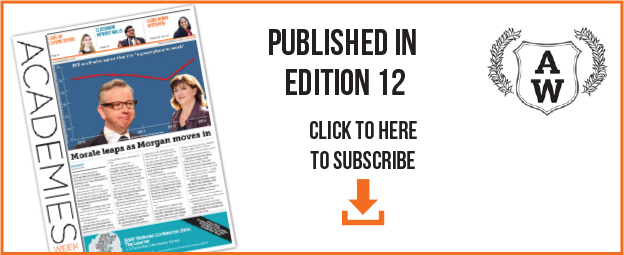Our reviewer of the week is Andrew Old, teacher and blogger @oldandrewuk
Damned if I do, damned if I don’t
By @ImSporticus
A PE teacher recounts the grim tale of his poor relationship with a parent. He describes unreasonable behaviour on the part of the parent; ill-judged and unsupportive actions by senior managers, and his own mistakes. He concludes that he is in a no-win situation. This may be familiar to any teacher who is faced with a parent unwilling to acknowledge the problems with his or her child’s behaviour.
Jesus Christ: The Nativity Play
Writer and educationist Martin Robinson considers recent debate about schools modernising nativity plays. He argues that there is value in the tradition. “If a school wants to do a nativity play then it should do a very traditional one. If there is music it should be traditional carols. If a school doesn’t want to do a nativity, then don’t do one; if you want to do a show, do a cabaret or a pantomime. Both forms allow for foolishness and fun. The nativity does not.”
By @iTeachRE
Following a Guardian article criticising RE teaching, an RE teacher acknowledges what is wrong with what happens in many schools. The article, “hit a nerve because deep down, we know that the examples he highlighted are possibly still happening in classrooms”. Suggestions are made about what needs to improve, and includes the issue of addressing the quality of the GCSE which he has found to be widely criticised.
By @MissCranky
A teacher describes the stresses of being observed:
“Would I be so heavily scrutinised in any other field? Doubtful. Would I constantly be wondering if I’m good enough in any other field? Possibly, but it would likely be without the fear of having to perform constantly under such threat of informal support and capabilities procedures. Could I continue to do my job accurately and professionally if I was simply observed once per year? Absolutely.”
Put down that measuring cylinder and step away from the pond.
By thequirkyteacher.wordpress.com
In a post that is music to the ears of a secondary maths teacher such as myself, a new primary teacher picks apart the fashions in primary maths that, “inhibit children’s progress through to secondary school and in life in general”. Of particular concern is an aversion to practice and fluency that leaves children unable to do their times-tables except by repeated addition. “Children need to practise, practise and practise. This should be done at every stage, and this should be right from the very start of a child’s school career.”
By @suzie81blog
This post, from a form tutor, describes the way her students always have an excuse for failing to comply with the school’s expectations. “The excuses are never original, the only difference being that it is a different child daily that gives them and after hearing them repeatedly for years I feel like I should be in Groundhog Day.” She concludes with George Washington’s maxim that, “It is better to offer no excuse than a bad one.”
The dark side: a rant about SLT
By welcometobigschool.wordpress.com
A new member of primary school SLT is dismayed to be doing a job not in the interests of teachers or children: “We have designed tick-box forms to assess, scrutinise and pick apart every aspect of teachers’ practice. We have fussily picked over the bones of their writing books, shaking our heads and writing actions for improvement. We do it to ‘build up a picture’ and to ‘identify inconsistencies’. We are so completely, smugly sure about the value and righteousness of what we are doing with these scrutinies that we don’t notice the devastating impact it is having on teachers’ confidence to come to work and simply do their job.”













Your thoughts